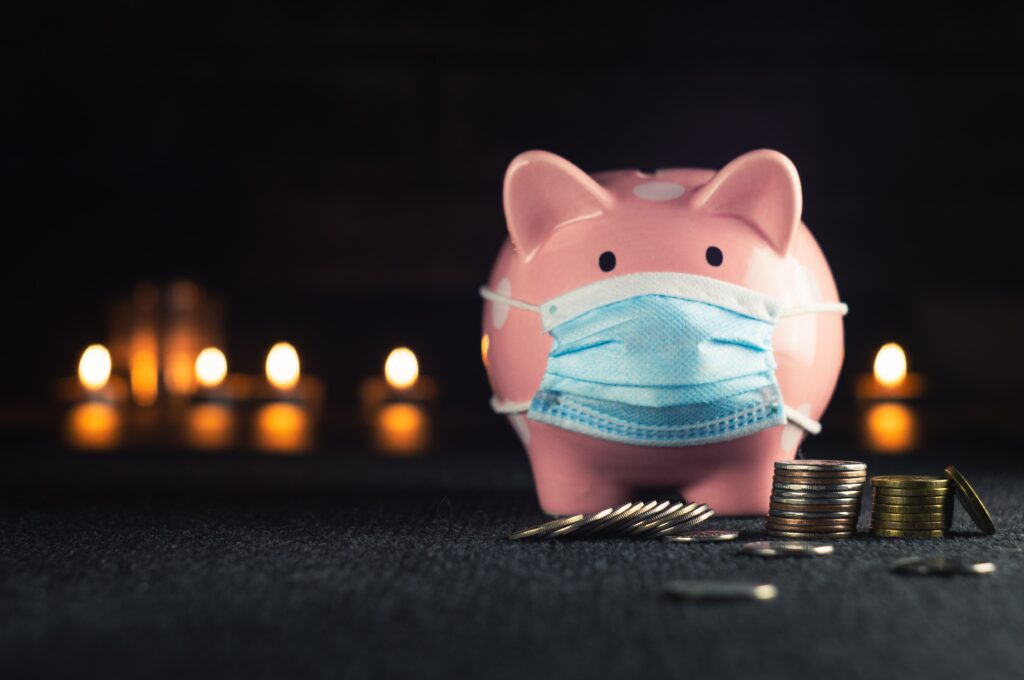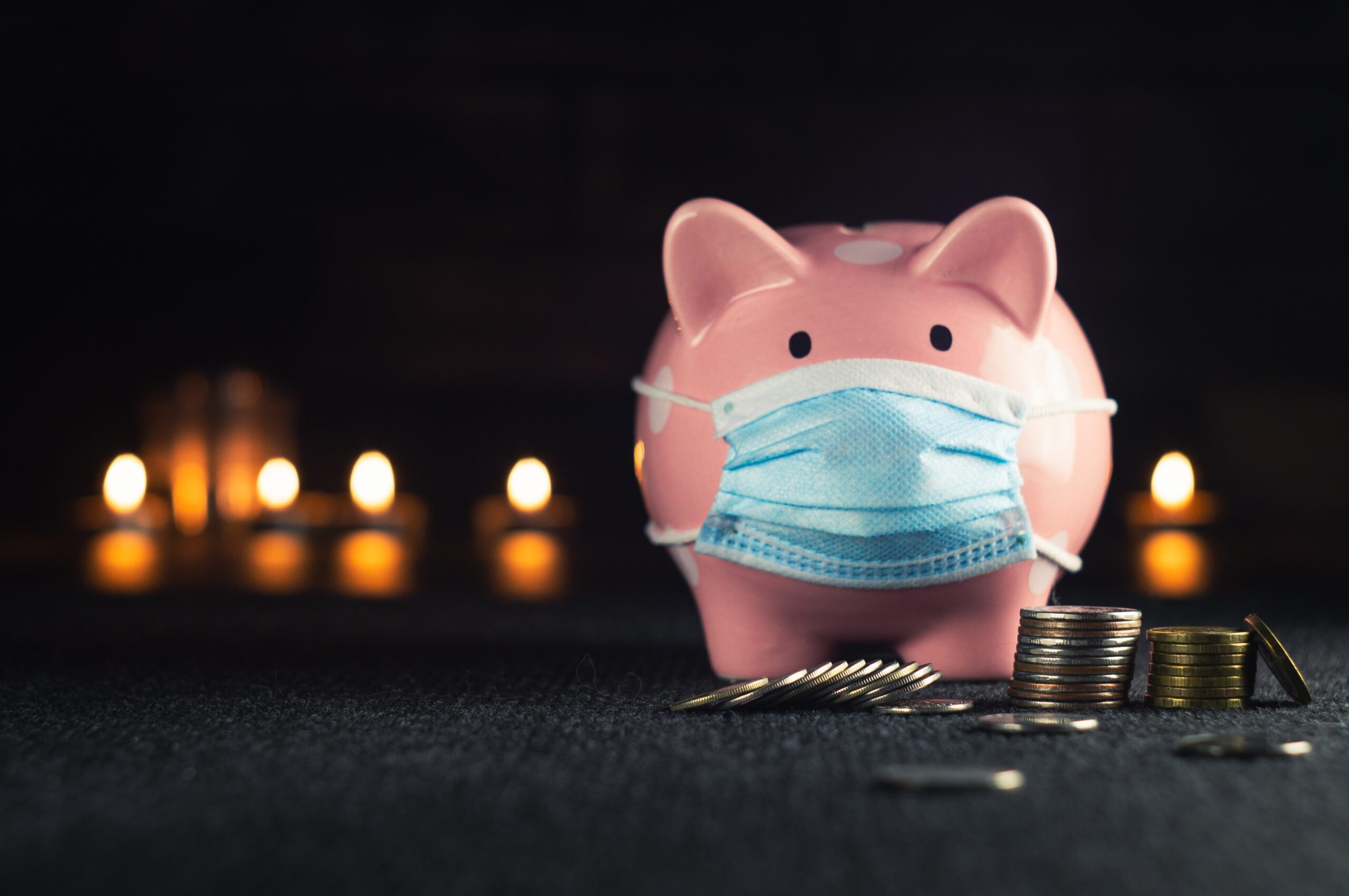
Financial security is one of the most important parts of independent living, but can also be scary. There are a lot of forms of financial security and methods of payment. Here, we will review these forms of payment and how you can feel comfortable with all financial matters!
BANK ACCOUNTS
Think of a bank account as a central hub…a bank account is how you can always see your money and know that your transactions are up to date. Typically, you need to schedule an appointment with a banker at the bank of your choosing to open an account. You will be asked to bring important documents, like a driver’s license and/or a birth certificate. The banker will go through the different options available and will also provide routing and account numbers and a debit card with a special PIN number. There are two popular forms of bank accounts: the savings account and the checking account. Most people have a checking account, wherein they can use the money reflected there for whatever they choose, but having a savings account can be really helpful, too, as it allows you to put money away for whatever you might want to buy in the future.
ENVELOPE SYSTEM
For those who like feeling the money right in their hands, we have great news for you! The envelope system is a physical form of dividing up your paycheck. You have three labeled envelopes—needs, wants, and savings/debt repayment. The needs include things you cannot live without, the wants include things that you desire, and the savings/debt repayment envelope is money you would put away to help pay back a debt or to sit in a savings account.. The debt repayment route is typically reserved for those who have taken out big loans. Click here https://www.nerdwallet.com/article/finance/envelope-system) to learn more.
DEBIT AND CREDIT CARDS
NC State has already gone cashless, but it looks like many other parts of the world are becoming more interested in cashless payments…and that is where the credit and debit cards stroll in, ready to introduce themselves.
A debit card is a form of payment that allows you to directly use funds to pay for goods and services. The money in your bank account (particularly, your checking account) is reflected on your debit card balance. You can use your debit card to pay for anything, but it is recommended that you check your balance once per day so that you are aware how much money you have left in your account. In some cases, if you exceed the amount of money you have in your bank account when purchasing a good or service, your card will either be declined or you will be charged an overdraft fee. An overdraft fee is when the bank covers the amount of money that exceeded your bank statement, but it is now money that you effectively owe the bank.
Another popular line of payment is credit. Credit is a form of payment that allows you to directly purchase a good or service, but you will eventually pay back that money over time. Another component of credit is the credit score. If you pay back what you owe on a regular basis (or all at once, which is often advised), then your credit score will improve and it will be easier for you to be approved for various loans, rentals, and big-ticket purchases, such as cars. For some, it is easy to get behind on credit card bills, which can damage your credit score both in the short-term and the long-term. It is easy to fall off the wagon with a line of credit. Some fail to remember to pay their credit card bills and some buy so much on credit that they eventually owe more to the credit card companies than they ever originally thought. By paying your credit card bills on time and limiting the amount of things you buy with your credit card, you will have an ideal credit score and will also have an easier understanding of financial literacy.
WAGES AND SALARIES
Cha-ching! You’ve just received your first paycheck! Before you pat yourself on the back for all of your hard work, you should understand the different methods of being paid by your employer. Most people receive their salary or wage amounts by way of direct deposit. Direct deposit is exactly how it sounds…the money you earn is deposited in your account, with the taxes already deducted. Once the money has been processed and deposited, it is yours to do with what you wish.
Paper checks are going the way of the dinosaur, but are still valid forms of payment. Paper checks are issued by your bank and include your name, contact information, and address. When you receive a check in the form of a gift or a paycheck, you need to “endorse” the check (by signing on the indicated line, included on the back of the check) and then either bringing the check to your local bank or submitting it over the app for your bank.
DEBT REPAYMENT
Paying back debts is something no one likes to do…it’s work and not at all fun. But, another aspect of financial literacy that is extremely important are debt repayments. When you take out any sum of money, you have to repay what you owe. These payments are typically on a monthly basis, but can be weekly, semi-annually, or annually. But don’t worry, the more payments you make, the lighter you’ll feel! Just make sure not to skip a payment…
CREDIT SCORE
Credit scores are more important than you might think! As discussed earlier, the credit score is a huge part of financial literacy. A credit score can make or break your power in purchasing items or making down payments. When you apply for loans, the banker will review your credit score. When you use a credit card, you must keep your credit score in mind. Many people use credit cards only for paying monthly bills or groceries, as it is an amount of money they can promptly and completely pay back. The more consistently you pay back your credit card bills, the higher your credit score will rise. And a higher credit score can help you obtain a better mortgage rate, it can help you seamlessly buy a car, and it can even encourage a landlord to add you as a tenant. The range of credit scores are as follows:
- Bad: 300-629
- Fair: 630-689
- Good: 690-719
- Excellent: 720-850
Click here (https://www.nerdwallet.com/article/finance/credit-score-ranges-and-how-to-improve) to learn more about credit scores and for a better understanding of the ranges.
Resources:
